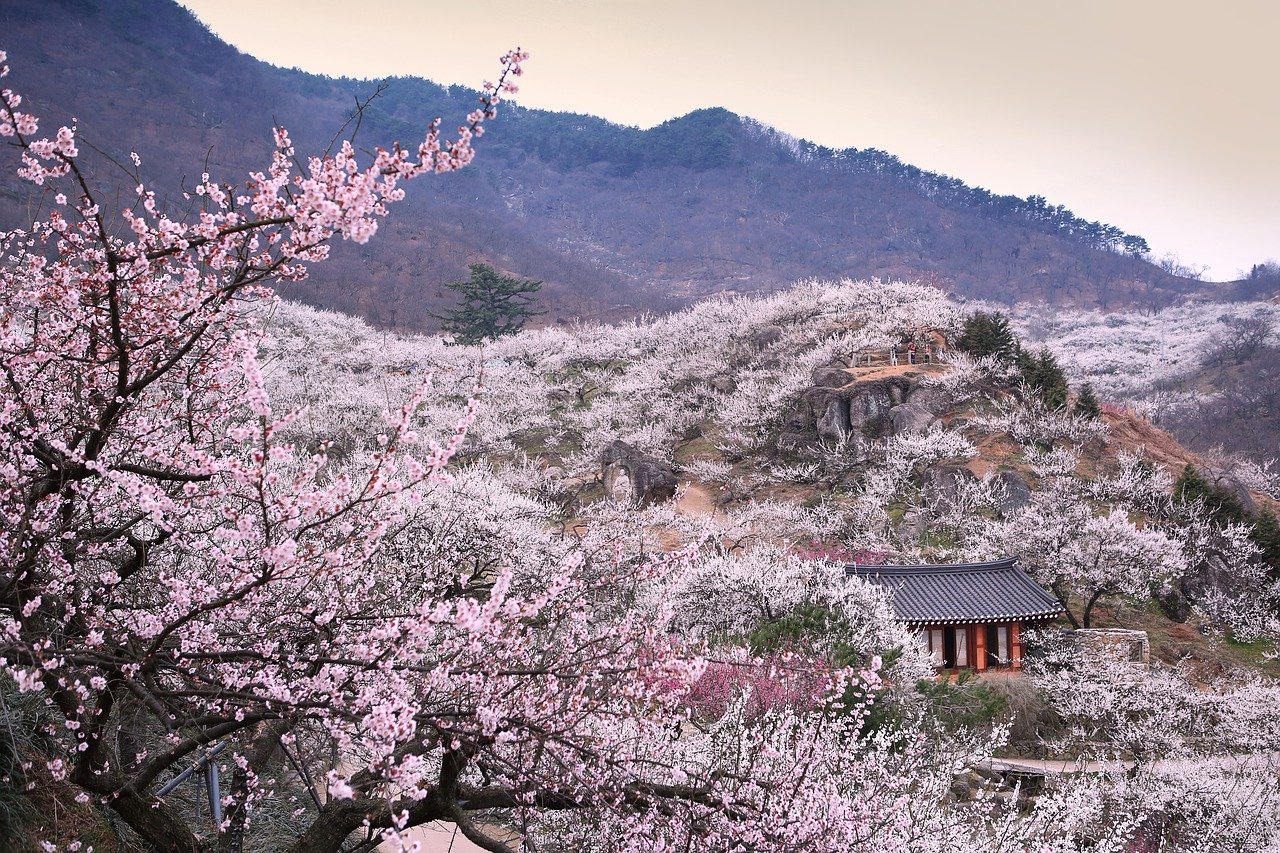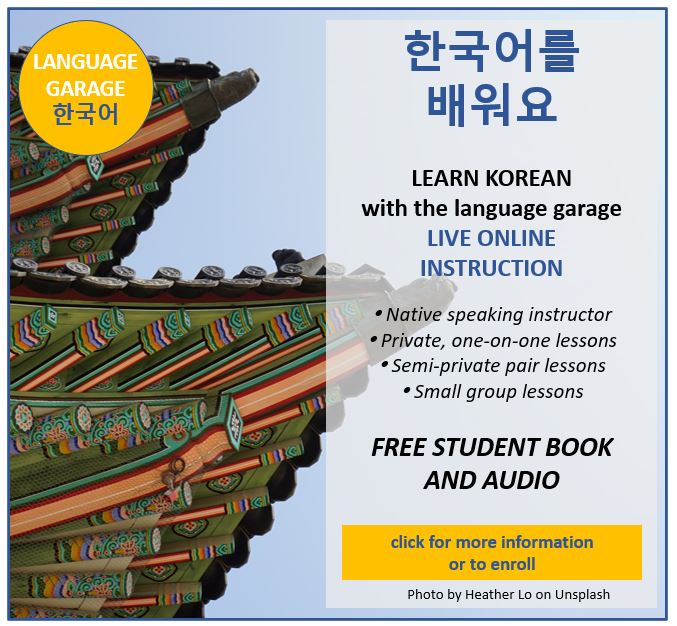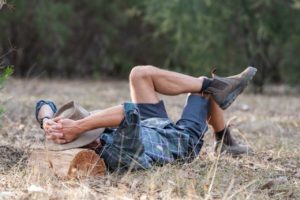In this post we’ll look at a lot of Korean vocabulary and expressions that will come in handy when you travel. Let’s start with the basics.
내 여행가방 nae yeohaeng-gabang My Suitcase
Before you travel, you of course need to pack. So let’s start there.
- 여행가방
yeohaeng-gabang
suitcase - 나는 여행 가방을 싸야 해요.
na-neun yeohaeng gabang-eul ssaya haeyo.
I need to pack my suitcase.
- 내 여행 가방은 무거워요/ 가벼워요/ 비었어요.
nae yeohaeng gabang-eun mugeowoyo/ gabyeowoyo/ bieoss-eoyo.
My suitcase is heavy/light/full/empty. - 옷들이 가방에 들어가지 않아요.
otdeul-i gabang-e deul-eogaji anhayo.
My clothes don’t fit in my suitcase. - 또 하나의 가방/여행가방이 필요해요.
tto hanaui gabang/yeohaeng-gabang-i pil-yohaeyo
I need another bag/suitcase.
공항에 gonghang-e At the Airport
If you’re traveling, you’re probably going to leave from and arrive at an airport.
- 비행기표, 탑승권, 여권, 비행기
bihaenggipyo, tabseung-gwon, yeogwon, bihaenggi
plane ticket, boarding pass, passport, flight - 도착편, 출발편, 탑승구, 수하물 찾는 곳
dochagpyeon, chulbalpyeon, tabseung-gu, suhamul chajneun got
arrivals, departures, gate, baggage claim - 출입국 관리, 세관
chul-ibgug gwanli, segwan
passport control, customs - 제 짐을 부쳐야 해요.
je jim-eul buchyeoya haeyo.
I need to check my luggage. - 기내용 가방이 있어요.
ginaeyong gabang-i isseoyo.
I have a carry-on bag. - 비행기는 언제 떠나요?
bihaenggineun eonje tteonayo?
When does the flight leave? - 보안 검색대에 줄이 길어요.
boan geomsaegdae-e jul-i gileoyo.
There’s a long line at security. - 우리는 십분 후에 탑승합니다.
uli-neun shibbun hu-e tabseunghamnida.
We’re boarding in ten minutes. - 창가 자리, 통로 자리, 가운데 자리
changga jali, tonglo jali, gaunde jali
window seat, aisle seat, middle seat - 조종사, 승무원
jojongsa, seungmuwon
pilot, flight attendant - 안전벨트를 매세요.
anjeonbelteu-leul maeseyo.
Please fasten your seatbelt. - 휴대폰을 꺼 주세요.
hyudaepon-eul kkeo juseyo.
Please turn off your cell phone. - 비행 시간이 얼마나 되나요?
bihaeng shigan-i eolmana doenayo?
How long is the flight? - 십분 후에 착륙합니다.
shibbun hu-e chaglyughamnida.
We’re landing in ten minutes. - 세관과 출입국 관리소를 거쳐야 합니다.
segwangwa chulibgug gwanliso-leul geochyeoya hamnida.
We need to go through customs and passport control. - 수하물 찾는 곳이 어디에요?
suhamul chajneun gosh-i eodieyo?
Where’s the baggage claim area? - 택시는 어디에 있어요?
taegsi-neun eodi-e isseoyo?
Where are the taxis? - 시내로 가는 기차가/버스가 있어요?
shinae-lo ganeun gicha-ga/beoseu-ga isseoyo?
Is there a train/bus to the city? - 환전해야 해요.
hwanjeonhaeya haeyo.
I need to exchange money.
호텔에 hotel-e At the Hotel
You’ve finally arrived, so let’s get you settled in your hotel room.
- 호텔이 어디에요?
hotel-i eodieyo?
Where is the hotel? - 체크인 하고 싶어요.
chekeu-in hago shipeoyo.
I’d like to check in. - 예약 했어요. 제 이름은… 이에요.
yeyag haesseoyo. je ileum-eun… ieyo.
I have a reservation. My name is… - 엘리베이터가 어디 있어요?
ellibeiteo-ga eodi isseoyo?
Where’s the elevator? - 내 방은 몇 층 이에요?
nae bang-eun myeot cheung ieyo?
What floor is my room on? - 방, 침대, 화장실, 창문, 텔레비전, 전화기
bang, chimdae, hwajangshil, changmun, tellebijeon, jeonhwagi
room, bed, bathroom, window, television, phone - 시트, 담요, 베개, 목욕가운
shiteu, damyo, begae, mogyoggaun
sheets, blanket, pillow, bathrobe - 룸 서비스가 있어요?
lum seobiseu-ga isseoyo?
Is there room service? - 담요 한 장 더 주실래요?
damyo han jang deo jushillaeyo?
Can I have an extra blanket? - 다리미와 다리미 판 주실래요?
dalimiwa dalimi pan jushillaeyo?
Can I have an iron and an ironing board? - 드라이어 주실래요?
deulaieo jushillaeyo?
Can I have a blow-dryer? - 옷을 세탁 할 수 있어요?
os-eul setag hal su isseoyo?
Can I have my clothes washed? - 온풍기가 안되요.
onpunggi-ga andoeyo.
The heat isn’t working. - 에어컨이 안되요.
eeokeon-i andoeyo.
The air conditioning isn’t working. - 방 청소 해주세요.
bang cheongso haejuseyo.
Please clean my room. - 다른 방/ 더 큰방/ 더 조용한 방으로 주시겠어요?
daleun bang/ deo keunbang/ deo joyonghan bang-eulo jusigess-eoyo?
Can I have another room / a bigger room / a quieter room? - 아침은 어디에서 먹어요?
achim-eun eodi-eseo meogeoyo?
Where do we eat breakfast? - 운동 시설이 있어요?
undong shiseol-i isseoyo?
Is there an exercise room? - 수영장이 있어요?
suyeongjang-i isseoyo?
Is there a pool? - 바가 있어요?
ba-ga isseoyo?
Is there a bar? - 식당이 있어요?
shigdang-i isseoyo?
Is there a restaurant? - 와이파이가 있어요?
waipai-ga isseoyo?
Do you have WiFi? - 와이파이 비밀번호가 뭐에요?
waipai bimilbeonho-ga mwo-eyo?
What’s the WiFi password? - 체크아웃은 몇 시예요?
chekeuaus-eun myeot shiyeyo?
What time is check-out? - 체크아웃 하고 싶어요.
chekeuaut hago shipeoyo.
I would like to check out. - 택시 불러 주시겠습니까?
taegsi bulleo jusigessseumnikka?
Can you call a taxi for me?
배고파요! baegopayo! I’m hungry!
When you’re traveling, it’s important to know some basic terms for food, drink, and how to navigate a nice meal at a local restaurant. Check out this post, which covers all of that!
기차역이 어디에요? gichayeog-i eodieyo? Where is the train station?
Once you’re settled into your hotel, you probably want to know where things are in case you need to pop out and buy something.
- 근처에 편의점이 있어요?
geuncheo-e pyeon-uijeom-i isseoyo?
Is there a convenience store nearby? - 근처에 약국이 있어요?
geuncheo-e yaggug-i isseoyo?
Is there a pharmacy nearby? - 근처에 슈퍼마켓이 있어요?
geuncheo-e syupeomakesh-i isseoyo?
Is there a supermarket nearby? - 근처에 좋은 식당이 있어요?
geuncheo-e joheun shigdang-i isseoyo?
Is there a good restaurant nearby? - 근처에 병원이 있어요?
geuncheo-e byeongwon-i isseoyo?
Is there a hospital/doctor’s office nearby? - 근처에 서점이 있어요?
geuncheo-e seojeom-i isseoyo?
Is there a bookstore nearby? - 근처에 옷 가게가 있어요?
geuncheo-e ot gage-ga isseoyo?
Is there a clothing store nearby? - 근처에 신발 가게가 있어요?
geuncheo-e shinbal gage-ga isseoyo?
Is there a shoe store nearby? - 지하철 역이 어디에요?
jihacheol yeog-i eodieyo?
Where is the subway station? - 기차 역이 어디에요?
gicha yeog-i eodieyo?
Where is the train station? - 버스 정류장이 어디에요?
beoseu jeonglyujang-i eodieyo?
Where is the bus station?
호텔 옆에 있어요. hotel yeop-e isseoyo. It’s next to the hotel.
Of course, if you ask where things are, you’ll need some basic vocabulary related to directions and getting around.
- 근처에 있어요?
geuncheo-e isseoyo?
Is it nearby? - 여기서 멀어요?
yeogi-seo meoleoyo?
Is it far from here? - 거기까지 걸어갈 수 있어요?
geogi-kkaji geoleogal su isseoyo?
Can I walk there? - 근처에요.
geuncheoeyo.
It’s nearby. - 여기서 멀어요.
yeogi-seo meoleoyo.
It’s far from here. - 길 건너편에 있어요.
gil geonneopyeon-e isseoyo.
It’s across the street. - 호텔 옆에 있어요.
hotel yeop-e isseoyo.
It’s next to the hotel. - 길을 건너요.
gil-eul geonneoyo.
Cross the street. - 다리를 건너요.
dali-leul geonneoyo.
Cross the bridge. - 오른쪽으로 돌아요.
oleunjjog-eulo dolayo.
Turn right. - 왼쪽으로 돌아요.
oenjjog-eulo dolayo.
Turn left. - 곧장 앞으로 가요.
godjang ap-eulo gayo.
Go straight ahead. - 기차역 옆에 있어요.
gichayeog yeop-e isseoyo.
It’s next to the train station. - 기차역 근처에 있어요.
gichayeog geuncheo-e isseoyo.
It’s near the train station. - 기차역 뒤에 있어요.
gichayeog dwi-e isseoyo.
It’s behind the train station. - 기차역 왼쪽에 있어요.
gichayeog oenjjog-e isseoyo.
It’s the left of the train station. - 기차역 오른쪽에 있어요.
gichayeog oleunjjog-e isseoyo.
It’s to the right of the train station. - 기차역 앞에 있어요.
gichayeog ap-e isseoyo.
It’s in front of the train station.
관광하러 갑시다. gwangwanghaleo gabshida. Let’s go sightseeing.
Once you’re settled into your hotel and have gotten familiar with the area, you’ll probably want to take in the sights.
- 우리는 관광하고 싶어요.
uli-neun gwangwanghago shipeoyo.
We want to go sightseeing. - 이 도시의 지도가 있어요?
i doshi-e jido-ga isseoyo?
Do you have a map of the city? - 관광 버스가 있어요?
gwangwang beoseu-ga isseoyo?
Is there a tour bus? - 관광 가이드가 있어요?
gwangwang gaideu-ga isseoyo?
Is there a tour guide? - 박물관에 가고 싶어요.
bagmulgwan-e gago shipeoyo.
We want to go to a museum. - 성당을/ 절을/ 모스크를 방문하고 싶어요.
seongdang-eul/ jeol-eul/ moseukeu-leul bangmunhago shipeoyo
We want to visit a cathedral/ temple/ mosque. - 공원에 가고 싶어요.
gongwon-e gago shipeoyo.
We want to go to the park. - 미술관을 방문하고 싶어요.
misulgwan-eul bangmunhago shipeoyo.
We want to visit an art gallery. - 연극을/ 오페라를/ 콘서트를 보고 싶어요.
yeongeug-eul/ opela-leul/konseoteu-leul bogo shipeoyo.
We want to see a play/ opera/ concert. - 고궁을 방문하고 싶어요.
gogung-eul bangmunhago shipeoyo.
We want to visit a castle. - 기념비을 방문하고 싶어요.
ginyeombi-eul bangmunhago shipeoyo.
We want to visit a monument. - 어떤 유적지를 방문해야 할까요?
eotteon yujeogji-leul bangmunhaeya halkkayo?
Which historical sites should we visit? - 어떤 문화 유적지를 방문해야 할까요?
eotteon munhwa yujeogji-leul bangmunhaeya halkkayo?
Which cultural sites should we visit? - 쇼핑하기 가장 좋은 동네가 어디에요?
syopinghagi gajang joheun dongne-ga eodieyo?
Where’s the best neighborhood for shopping? - 밤 문화 경험에 가장 좋은 동네가 어디에요?
bam munhwa gyeongheom-e gajang joheun dongne-ga eodieyo?
Where’s the best neighborhood for nightlife? - 술집에/ 나이트 클럽에 가고 싶어요.
suljib-e/ naiteu keulleob-e gago shipeoyo.
We want to go to a bar/ nightclub. - 전망 좋은 곳이 어디에요?
jeonmang joheun gosh-i eodieyo?
Where is there a good view of the city? - 시장을 방문하고 싶어요.
shijang-eul bangmunhago shipeoyo.
We want to visit a market. - 야시장을 방문하고 싶어요.
yashijang-eul bangmunhago shipeoyo.
We want to visit a night market. - 근처에 공중 화장실이 있어요?
geuncheo-e gongjung hwajangshil-i isseoyo?
Is there a public bathroom nearby? - 화장실이 어디에요?
hwajangshil-i eodieyo?
Where is the bathroom? - 입구가/ 출구가 어디에요?
ibgu-ga/chulgu-ga eodieyo?
Where is the exit/ entrance? - 투어 비용이 얼마에요?
tueo biyong-i eolmaeyo?
How much does a tour cost?
이 기차는 어디로 가요? i gicha-neun eodi-lo gayo? Where does this train go?
You probably want to see some sights outside of the city, and for that you’ll need to get around.
- 부산에 가고 싶어요.
busan-e gago shipeoyo.
We want to go to Busan. - 부산행 버스표/기차표 한 장 주세요.
busanhaeng beoseupyo/ gichapyo han jang juseyo.
Please give me a bus ticket/train ticket to Busan. - 티켓은 얼마예요?
tikes-eun eolmayeyo?
How much does a ticket cost? - 편도 티켓 주세요.
pyeondo tiket juseyo.
Please give me a one-way ticket. - 왕복 티켓 주세요.
wangbog tiket juseyo.
Please give me a round-trip ticket. - 기차는/ 버스는 언제 떠나요?
gicha-neun/ beoseu-neun eonje tteonayo?
When does the train/ bus leave? - 기차는/ 버스는 언제 도착해요?
gicha-neun/ beoseu-neun eonje dochaghaeyo?
When does the train/ bus arrive? - 이 기차는/ 버스는 부산으로 가요?
i gicha-neun/beoseu-neun busan-eulo gayo?
Does this bus/train go to Busan? - 부산까지 가는데 얼마나 걸려요?
busan-kkaji ganeunde eolmana geollyeoyo?
How long does it take to go to Busan? - 어디에서 차를 렌트 할 수 있어요?
eodi-eseo cha-leul lenteu hal su isseoyo?
Where can I rent a car? - 해변에/ 산에/ 국립 공원에 어떻게 갈 수 있어요?
haebyeon-e/san-e/guglib gongwon-e eotteohge gal su isseoyo?
How can I get to the beach/ mountains/ national park?
비용이 얼마에요? biyong-i eolmaeyo? How much does it cost?
When you’re traveling, you probably need to by all sorts of things. Let’s cover that vocabulary.
- 어디에서 지도를/ 물 한 병을/ 커피 한잔을 살 수 있어요?
eodi-eseo jido-leul/ mul han byeong-eul/ keopi hanjan-eul sal su isseoyo?
Where can I buy a map/ a bottle of water/ a cup of coffee? - 어디에서 선글라스를/아스피린을/선크림을 살 수 있어요?
eodi-eseo seongeullaseu-leul/ aseupilin-eul/ seonkeulim-eul sal su isseoyo?
Where can I buy sunglasses/ aspirin/ sunscreen? - 어디에서 엽서를/ 기념품을 살 수 있어요?
eodi-eseo yeobseo-leul/ ginyeompum-eul sal su isseoyo?
Where can I buy postcards/ souvenirs? - 어디에서 먹을 것을/ 마실 것을 살 수 있어요?
eodi-eseo meogeul geos-eul/ masil geos-eul sal su isseoyo?
Where can I buy something to eat/ something to drink? - 비용이 얼마에요?
biyong-i eolmaeyo?
How much does it cost? - 가격을 적어 주세요.
gagyeog-eul jeogeo juseyo.
Please write the price. - 현금으로 지불해도 될까요?
hyeongeum-eulo jibulhaedo doelkkayo?
Can I pay by cash? - 신용카드로 지불해도 될까요?
shin-yongkadeu-lo jibulhaedo doelkkayo?
Can I pay by credit card? - 그건 너무 비싸요.
geugeon neomu bissayo.
That’s too expensive. - 조금 더 싼 거 있어요?
jogeum deo ssan geo isseoyo?
Do you have something less expensive? - 잠깐 좀 볼 수 있을까요?
jamkkan jom bol su isseulkkayo?
Can I see that, please? - 이거/그거 살게요.
igeo/geugeo salgeyo.
I’ll take this/that. - 입어 봐도 될까요?
ibeo bwado doelkkayo?
Can I try it on?
Learn Korean with the Language Garage
Check out our other posts on Korean language, culture, and more. And if you’re looking for convenient and affordable live Korean lessons with a real teacher, check out The Language Garage. Our lessons are given online in a virtual classroom, so it doesn’t matter where you live or work – we can come to you. And we have flexible options, with a free trial so that you can decide if there’s a fit. Check us out!






